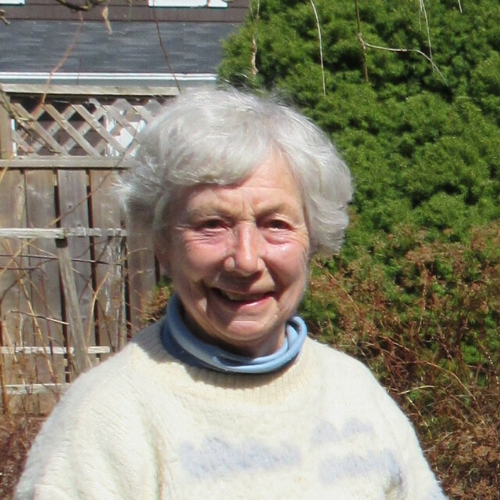
Author spotlight: Joan Dawson
Joan Dawson is a member of the Lunenburg County Historical Society, the Heritage Trust of Nova Scotia, the Nova Scotia Archaeology Society, and the Antiquarian Club of Halifax, and she is a fellow of the Royal Nova Scotia Historical Society. She has written many articles on maps and local history, co-authored Historic LaHave River Valley, and authored Nova Scotia’s Historic Rivers, Nova Scotia’s Lost Highways, The Mapmaker’s Eye, and The Mapmakers’ Legacy. Joan lives in Halifax.
How did you get interested in history?
I’ve always like social history, and growing up in the UK with its mediaeval churches and ancient villages, it became part of my everyday life.
What books did you read as a young person made you want to become a writer?
I read everything that came into my hands, from Winnie the Pooh to Shakespeare. From an early age at school we were encouraged to write, and I enjoyed it.
You seem to take such an interesting slant in your books. I’m thinking of A History of Nova Scotia in 50 Objects and Nova Scotia’s Lost Communities … topics that aren’t often explored. In writing history books about our area, what do you hope readers will discover?
I would like them to think about the way our communities have grown up, and to look for traces of the events and people that have shaped them into the places they are today, their hopes and dreams, successes and disappointments, joys and sorrows.
You’ve got a new book out this year, Nova Scotia’s Historic Harbours. What kinds of things did you find out that Nova Scotians may find surprising? What is it like to release a new book during a pandemic?
Two very different questions! First, I would like people to realize that almost all of our history began on our harbours. They are where Europeans first met the Indigenous people who frequented them, where people arrived as adventurers, colonizers, immigrants or refugees, to begin new lives; where they established communities based on industries; where they saw changes over the years.
Secondly, it is strangely relaxing not to be planning for a launch, for talks and signings, the usual events associated with a book release. I suppose—and hope—there may be reviews and media interviews, but it all seems to be very low key. Perhaps by the publication date which is still some time away, I’ll have more of an idea of how things will go.
What is your research process like? What’s your favourite part of writing a book?
My research method varies depending on how familiar I already am with my subject. I may go back to old notes and documents, re-read books, and look for new information. Or I may start from scratch, using the internet to find background material, and then check other resources for facts and details. I often use old maps to get a feel for a place and its inhabitants. I like to visit places, take photos, browse in local museums and on the internet. Probably my favourite part in writing a book is the initial planning and getting the first words onto the page.
What is your favourite part of Nova Scotia?
Lunenburg county and the LaHave River, for their beauty and for the depth of their history.
If you weren’t a writer, what would you be?
An idle old woman messing about in her garden. (I often wish I had studied archaeology.)
If you could only have three books to read during the pandemic, what would they be and why?
I recently bought Hilary Mantel’s Bring Up The Bodies and The Mirror & The Light, but before I began on them, I went back to Wolf Hall, which I had read ages ago. I’m now nearly through Bring Up The Bodies, and will soon begin on the last (and thickest) of the trilogy. So there are the three that I’m actually reading, but if I were limited to only three for the duration, I would probably chose a complete Shakespeare, the Oxford Book of English Verse, and a Dickens novel.
What is bringing you happiness during this pandemic? What do you find the most difficult?
A great joy has been sunny Sundays when my son and daughter-in-law and a grandson have come to have tea with me—at a distance—in a sheltered corner of my garden. Working in my garden is another joy, and even weeding, now that there’s all the time in the world, brings a sense of satisfaction. What is difficult is not being able to meet friends for coffee and a chat, but it’s good to exchange news and ideas by email.
What are you working on now?
I have been writing pieces for Historic Nova Scotia, a website highlighting interesting people, places and events around the province.
– questions by Marilyn Smulders
